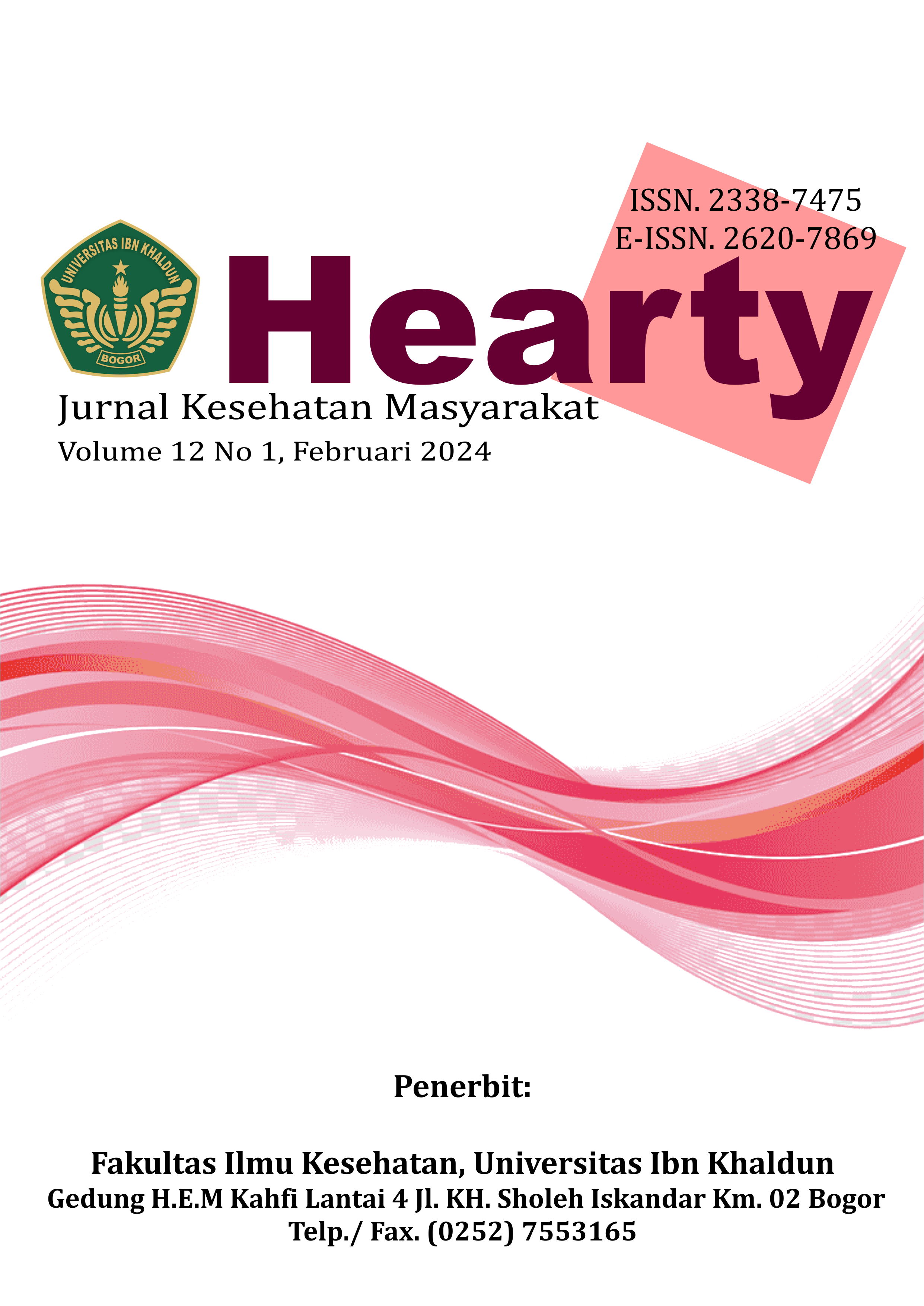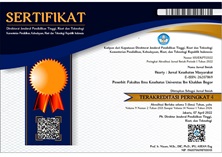DIETARY EDUCATION STUDY IN ROUTINE CKD ON HD PATIENTS AGAINST THE INCIDENCE OF REHOSPITALIZATION AT CILEUNGSI HOSPITAL IN 2023
DOI:
https://doi.org/10.32832/hearty.v12i1.16072Abstrak
Background: According to the 2020 WHO report, the number of Hemodialysis patients is increasing by 8% per year. Kovesdy Research 2022: 843.6 million individuals globally suffer from chronic kidney failure stages 1-5. In Asia, Liyanage et al. 2022: 434.3 million adults experience chronic kidney failure, most in China (159.8 million) and India (140.2 million). Research Objective: To determine the effect of diet education studies in CKD patients on routine HD on the incidence of re-hospitalization at Cileungsi Regional Hospital in 2023. Research Methodology: Analytical with a cross sectional approach. The sample in this study was all 25 hemodialysis patients in the hemodialysis installation at the Cileungsi Regional General Hospital, the sampling technique was total sampling. Research Findings: The results of the analysis show that the majority of respondents who underwent re-hospitalization had good knowledge (100%), but there was no significant relationship with the incidence of re-hospitalization (p-value = 0.09). Likewise, most respondents adhered to CKD diet therapy (93.3%), but there was no significant relationship with the incidence of re-hospitalization (p-value = 1.000). In other words, there is no significant relationship between knowledge about diet and the incidence of re-hospitalization (p-value = 0.09), and there is no significant relationship between adherence to diet therapy and the incidence of re-hospitalization (p-value = 1.000). Conclusion and Recommendations: The majority of respondents were women (52%), aged 41-50 years (40%), and undergoing hemodialysis for 1-5 years (80%). However, there was no significant relationship between knowledge about diet, adherence to diet therapy, and the incidence of re-hospitalization in CKD patients at Cileungsi Regional Hospital (p-value > 0.05). Suggestion: increase patient motivation to be more compliant with diet therapy to prevent re-hospitalization in CKD patients.
























